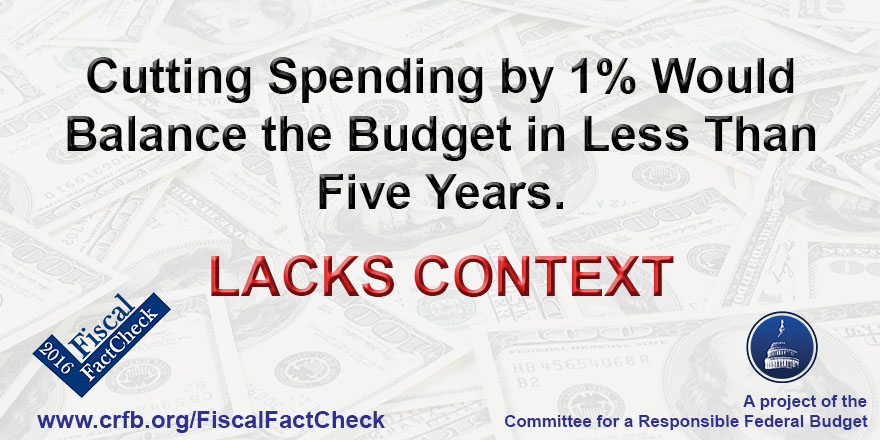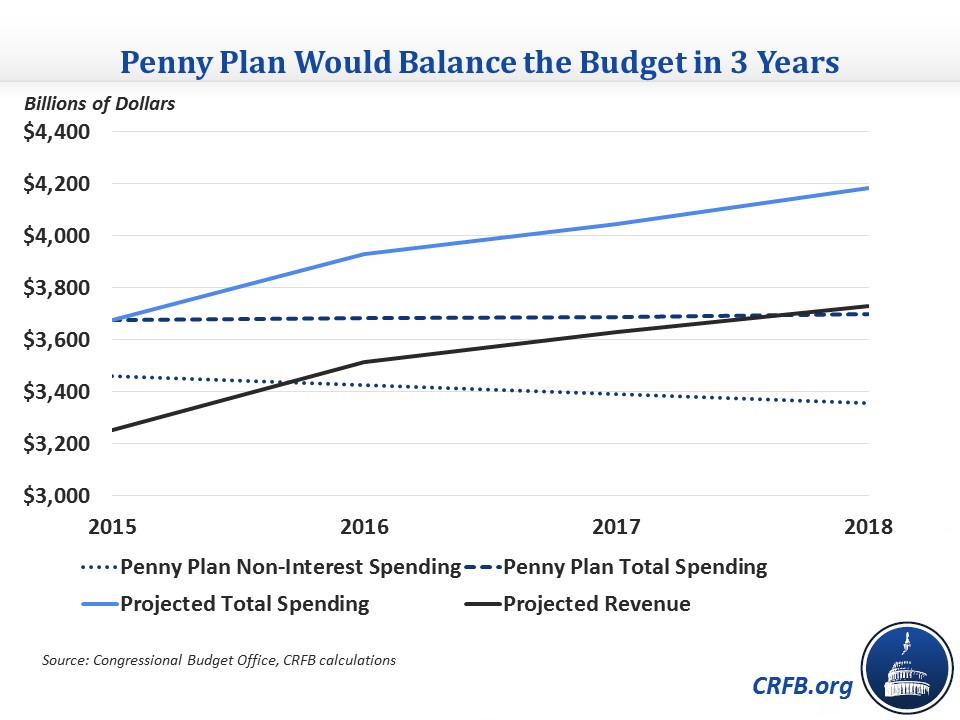Would Cutting Spending by 1% Balance the Budget in Less Than Five Years?
During the November 10 Republican debate, Sen. Rand Paul (R-KY) said when discussing balanced budgets, "I’m also in favor of a plan called the penny plan where we’d just cut 1 percent across the board and the budget actually balances in less than five years." The math on this is largely similar to Ben Carson's claim that freezing spending for three years would balance the budget. The plan Paul discusses, which we previously described here, would cut nominal dollar non-interest spending by 1 percent per year and would result in the budget being balanced in 2018 if it started next year. Since interest spending is projected to increase over time as the interest rates rise, the penny plan would basically result in a freeze in total spending between now and 2018.


As with Ben Carson's claim that freezing spending for three years would balance the budget, cutting non-interest spending by 1 percent per year is not as simple as it sounds, though. Since many programs naturally grow over time (in nominal dollars) due to inflation, health care cost growth, population growth, and other factors, this cut would entail significant effective cuts to many programs and/or a significant downsizing in government functions. To his credit, Sen. Paul has proposed specific budgets in the past to do so, but it would be politically and mathematically very difficult to achieve.


